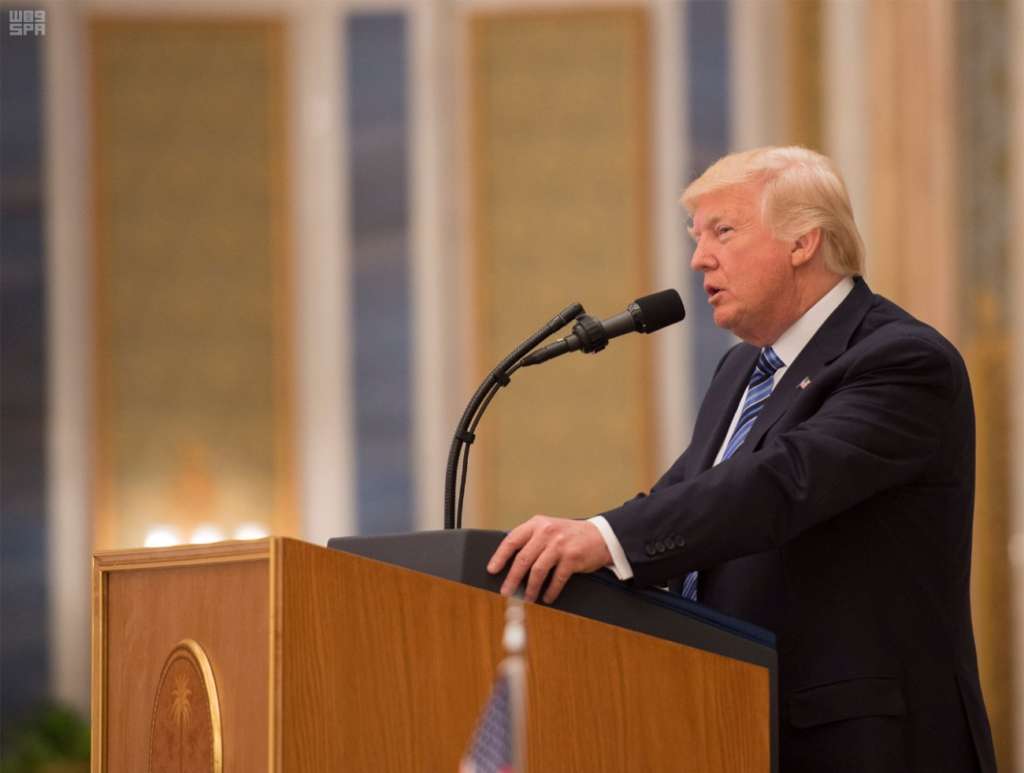All the consecutive events indicate a new phase looms ahead for the region. The signs are many, including US President Donald Trump’s visit to Saudi Arabia, his important speech before the Islamic summit and the announcement of series of measures to confront Iran.
In his speech, Trump equated Hezbollah with al-Qaeda, initiated military cooperation with the coalition in Yemen to deal with Houthi insurgents, and instated the role of US military troops in Syria. During his meeting with the King of Bahrain in Saudi Arabia, Trump conveyed that the US altered its policy and and will no longer pressure the Bahraini government concerning the opposition.
Iran is the common factor in all those causes and all of these are an indication of important changes and their effect will be clear to us within the coming few months.
What really happened? Saudi diplomacy became active in Washington and what we are witnessing today is the result of that movement.
Saudi Arabia and the US agreed to cooperate against two threats: terrorism as an international organization and the Iranian expansion in other countries. The Saudi King’s speech during the Araba-Islamic-US Summit focused on those two issues.
The US adopted those positions quickly and unexpectedly. Trump appointed in his government prominent political and military officials who are experts in the region as they understand it well since they’ve worked in it and are aware of the actual facts. This explains the US’ swift shift and condemnation against Iran for the chaos in Syria and Yemen.
After Trump’s arrival in Riyadh, Tehran announced Hasan Rouhani as its president for a second term. It seemed like a reconciliation message from the regime. The coming days will prove whether the Iranian government adopted some positive steps and tangible measures or things would remain as they were.
Iran is in big trouble because of its fast actions against it in Syria, Iraq, Yemen and Lebanon. If Tehran tried to escalate its activity, more sanctions will be imposed.
An example is Iran’s trouble is its purchase of 80 US Boeing airplanes for $16 billion. In case sanctions were imposed, which will most likely include spare parts and maintenance, Tehran will be unable to use those airplanes.
Rouhani may be the only good figure in that regime. But the Revolutionary Guard is an evil machine and partner in murdering about half a million Syrian. They are accomplices in assassinations in Lebanon and responsible for marginalizing the central authority in Iraq by supporting militias that are against it.
The Revolutionary Guard also supported, trained, and armed Houthi troops that staged a coup against the Yemeni government.
All of that is part of Tehran’s project to besiege Saudi Arabia and Gulf countries and dominate the region.
Instability in the Middle East threatens the whole world’s interests and causes chaos, as it has been the case over the past six years. The US wants Iran to realize that the world will not tolerate chaos and will not remain silent over anything that threatens its interests.
Are we happy that President Trump changed his country’s policy and is supporting the camp of moderate Muslim and Arab countries?
Surely, this is an important and crucial development. But, we mustn’t forget that for thirty years we were facing a radical Iranian regime, spearhead of terrorism as described by King Salman bin Abdulaziz in his speech before the Arab-Islamic-US Summit.
We previously fought this regime without the US, especially during the final chaotic years. Without Washington, we confronted Iran in Syria, Lebanon, and Yemen. Now, the US can participate in pressuring the Ayatollah regime in Tehran in hopes it will reconsider continuing with its adventures and chaos which would be costly.
President Rouhani is faced with a new situation that requires a lot of thinking. He should devise a reconciliation plan that ends his country’s interferences. It is about time Ayatollah Khomeini’s project announced in 1979 is over. It is about time his promise to export Iran’s revolution to the region be terminated and we move into a new regional phase.
